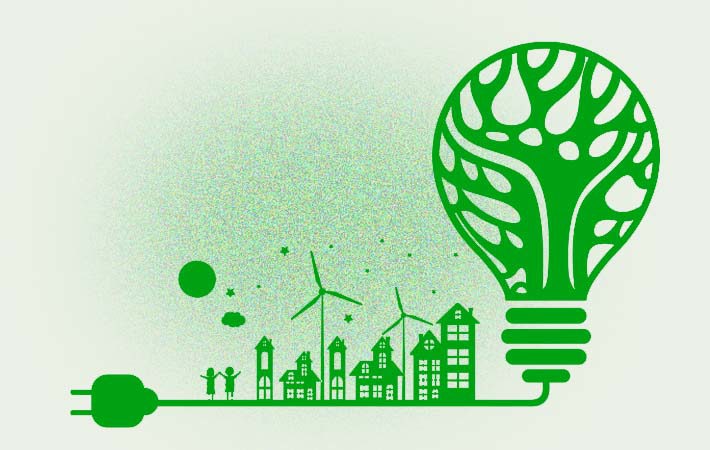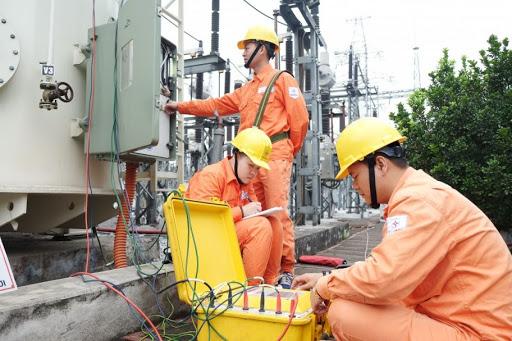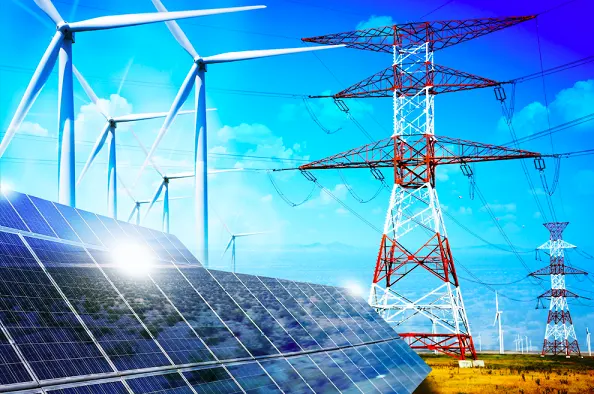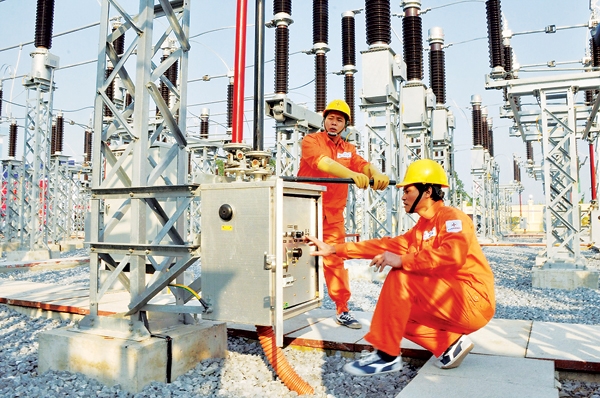Guidance on solutions to save electricity in the period of 2023 - 2025 in Vietnam
Guidance on solutions to save electricity in the period of 2023 - 2025 in Vietnam is notable point specified in Directive 20/CT-TTg dated June 8, 2023.

Guidance on solutions to save electricity in the period of 2023 - 2025 in Vietnam (Internet image)
On June 8, 2023, the Prime Minister of Vietnam issued Directive 20/CT-TTg on enhancing electricity saving in the period of 2023 - 2025 and the following years.
In which, the Prime Minister of Vietnam gave instructions on solutions to save electricity with ministries, ministerial-level agencies, agencies attached to the Government, People's Committees of provinces, and centrally run cities, businesses, and mass organizations - social as follows:
1. Guidance on solutions to save electricity at workplace in Vietnam
- Coordinating with local power companies to develop and organize the implementation of electricity saving plans for their units, ensuring at least 5.0% annual savings of total electricity consumed in the year.
- Developing, promulgating, and organizing the effective implementation of regulations on electricity saving and regulations on the use, maintenance, and repair of electricity-consuming equipment at agencies and units.
- Disseminating and thoroughly understanding the implementation of power saving to all employees, including the content of electricity saving in the indicator of task completion, abide by internal discipline, and emulate and reward every year. Heads at agencies and offices are responsible for cases of violations of regulations on energy savings in their units.
- Utilizing and mobilizing resources to install and use rooftop solar power systems and solar hot water heating systems to reduce electricity consumption from the national electricity system.
- Strengthening the implementation of Decision 68/2011/QD-TTg.
- Urging, reviewing, and regularly inspecting the implementation of internal rules and current regulations on electricity saving.
2. Guidance on solutions to save electricity in public lighting, lighting for advertising purposes, and outdoor decoration in Vietnam
- Organizations and individuals that manage and operate public lighting systems, lighting systems for advertising and outdoor decoration purposes shall preside over, coordinate with power supply establishments to build and organize the implementation of electricity saving plans, whereby, at least 30% of total electricity consumption must be saved in the period of 2023–2025 for the above lighting activities.
- Applying management solutions, regulations, and technical standards for public lighting; replacing decorative lights, lighting, and advertising lights with energy-saving lamps; applying automatic control technology in public lighting, lighting for advertising purposes, and outdoor decoration. Promote the application of solar energy solutions for equipment serving the purposes of advertising, decoration, and public lighting.
- Deploying power-saving technology solutions in public lighting, using high-performance, energy-saving lighting equipment for 100% of public lighting projects in preparation for investment in construction, renovation, and upgrading .
- Accelerating the implementation of lighting automation according to the time frame and weather conditions of public lighting works.
- Restaurants, hotels, commercial service establishments, office complexes, and apartment buildings turn off or reduce at least 50% of the outdoor decorative advertising lighting capacity at the evening peak of the electrical system. at the request of the local power company; comply with regulations on economical and efficient lighting; be ready to cut and reduce electricity demand upon notification of the local power company in case of a power shortage; coordinate with local power companies to carry out appropriate propaganda programs and forms of propaganda on saving electricity in the summer peak, including programs, contests, and launching
on saving electricity in urban areas, apartment buildings, and commercial centers.
3. Guidance on solutions to save electricity in households in Vietnam
- Using electrical equipment labeled with energy according to Decision 04/2017/QD-TTg.
- Regularly practicing the behavior of economical and efficient use of electricity at home, such as: turning off electrical appliances when leaving the room; completely cutting off the power source if electrical appliances are not used; only using the air conditioner when absolutely necessary and using it at the right temperature and mode (cooling mode from 26 degrees Celsius or more); giving priority to the purchase of high-efficiency electric vehicles and equipment or electrical equipment labeled with high-efficiency energy; minimizing the use of incandescent light bulbs.
- Encouraging the installation and use of self-contained rooftop solar power systems for on-site use, hot water heating systems from solar energy.
4. Guidelines for solutions to save electricity at commercial and service establishments in Vietnam
- Develop and organize the implementation of internal regulations on electricity use, rules on economical, safe and efficient use of electricity at businesses and service establishments (supermarkets, commercial centers, restaurants, accommodation establishments, shops, hotels, commercial service establishments, office complexes, apartments).
- Developing and disseminating the establishment's electricity-saving regulations to customers.
- Developing plans and scenarios to coordinate with power companies in reducing load.
- Implementing the program to encourage the use of on-site energy sources and electrical equipment using renewable energy.
5. Guidance on solutions to save electricity in manufacturing enterprises in Vietnam
- Encouraging the implementation of the program by enterprises participating in the agreement to voluntarily implement solutions.
on energy saving, saving electricity, installing rooftop solar power, and consulting on implementing solutions for economical and efficient use of energy.
- Accelerating the implementation of Decision 279/QD-TTg dated March 8, 2018.
- Developing a program to mobilize the backup power generation system in case of a power shortage.
- Developing and implementing solutions for economical and efficient use of electricity, such as: ensuring the correct use of capacity and load charts; implementing a reasonable production plan; minimizing the mobilization of equipment and machinery with large electricity consumption capacities at peak hours; Minimize electrical equipment operating at zero load.
- Installing and integrating renewable energy sources such as solar energy, wind energy into the internal energy system; prioritizing the use of equipment labeled with high-efficiency energy.
- Energy-using establishments with electricity consumption of 01 million kWh/year or more must save at least 2% of electricity consumed per product unit per year or must save at least 2% of total electricity consumed in the year, review and ensure the observance and compliance with the provisions of the Law on Economical and Efficient Use of Energy and relevant legal documents on economical and efficient use of energy, saving electricity.
- Industrial production enterprises that are regulated by legal documents stipulating the energy consumption norm per unit of product must comply with the prescribed energy consumption norm.
- Encouraging the development and application of energy management systems according to ISO 50001:2018 at production and business establishments. Conduct periodic energy audits, develop and implement annual goals and solutions for the economical and efficient use of energy.
- Strengthening the promotion of advanced energy-saving techniques, promoting technological improvement in energy-intensive industries, optimizing production materials, eliminating backward production capacity, and continuing to improve energy efficiency through investment in energy saving projects.
- Deploying and applying technical guidelines on electricity saving and economical and efficient use of energy, exploit and use technology manuals on energy saving for energy consuming industries around the country.
More details can be found in Directive 20/CT-TTg, dated June 8, 2023.
Ho Quoc Tuan
- Key word:
- electricity
- in Vietnam
- Number of deputy directors of departments in Vietnam in accordance with Decree 45/2025/ND-CP
- Cases ineligible for pardon in Vietnam in 2025
- Decree 50/2025 amending Decree 151/2017 on the management of public assets in Vietnam
- Circular 07/2025 amending Circular 02/2022 on the Law on Environmental Protection in Vietnam
- Adjustment to the organizational structure of the Ministry of Health of Vietnam: Certain agencies are no longer listed in the organizational structure
- Vietnam aims to welcome 22-23 million international tourists in Vietnam in 2025
-

- Principles for establishing the framework for ...
- 15:30, 18/02/2025
-

- Procedures for approving the policy on buying ...
- 14:30, 18/02/2025
-

- What are documents for the Agreement on purchase ...
- 15:00, 17/02/2025
-

- 05 operational policies of the power system in ...
- 16:15, 15/02/2025
-

- 04 cases in which the electricity seller is permitted ...
- 15:00, 15/02/2025
-

- Notable new policies of Vietnam effective as of ...
- 16:26, 11/04/2025
-
.Medium.png)
- Notable documents of Vietnam in the previous week ...
- 16:21, 11/04/2025
-
.Medium.png)
- Notable documents of Vietnam in the previous week ...
- 16:11, 02/04/2025
-
.Medium.png)
- Notable new policies of Vietnam to be effective ...
- 16:04, 02/04/2025
-
.Medium.png)
- Notable new policies of Vietnam effective from ...
- 14:51, 21/03/2025
 Article table of contents
Article table of contents
